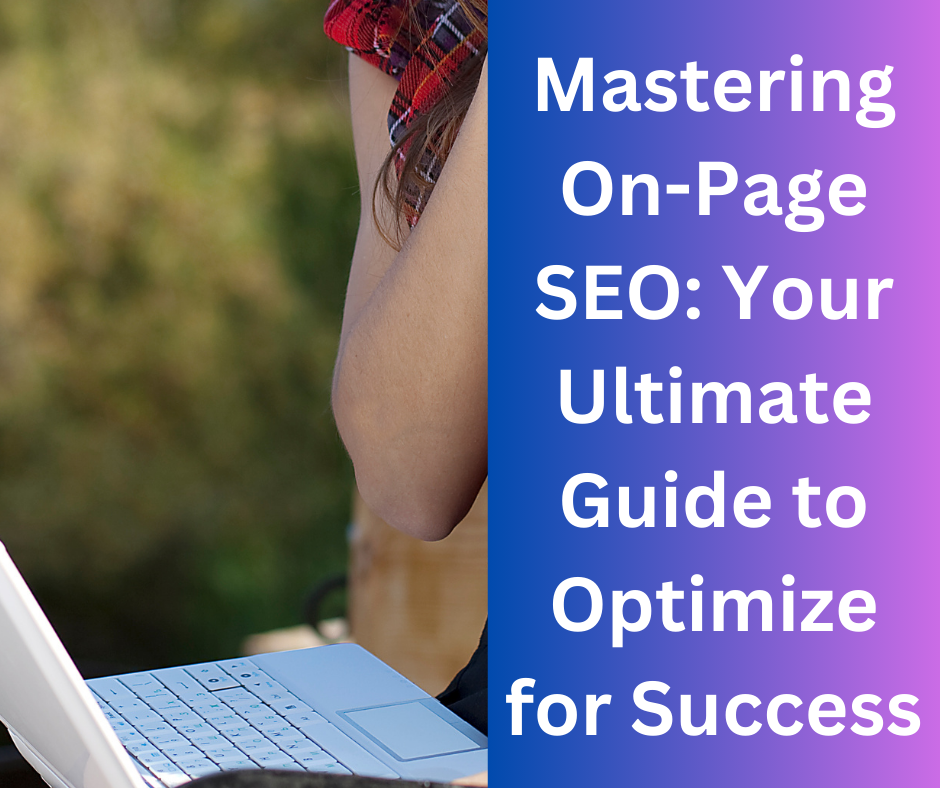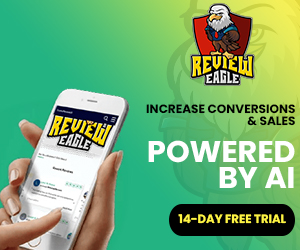Every website is fighting for visibility and high rankings in search engine results, mastering on-page SEO has become more crucial than ever. With millions of websites competing for attention, it’s essential to optimize your website to stand out from the crowd and attract the right audience. In this ultimate guide to mastering on-page SEO, we will delve deep into the world of search engine optimization and uncover the secrets to optimizing your website for success. Whether you’re a seasoned SEO expert or just starting your online journey, this comprehensive guide will equip you with the knowledge and tools to take your website to the next level.
Nowadays, search engine optimization (SEO) is not just a buzzword; it has become the backbone of online success. No matter how great your website is, if it’s not optimized for search engines, you risk being buried under an ocean of competitors. On-page SEO, as the name suggests, refers to the practice of optimizing various elements on your web pages to improve their visibility and relevance in search engine results.
From creating compelling meta tags to crafting keyword-rich content and ensuring a seamless user experience, on-page SEO encompasses a wide range of techniques that collectively contribute to your website’s overall SEO performance. But with Google’s constantly evolving algorithms and the ever-changing landscape of digital marketing, staying on top of the latest on-page SEO practices can feel like a daunting task. That’s why we’ve compiled this ultimate guide to help you navigate the complexities of on-page SEO and develop a comprehensive strategy that will give you a competitive edge.
So, whether you’re a business owner looking to optimize your website or an aspiring digital marketer eager to expand your SEO knowledge, this guide is your one-stop-shop for all things on-page optimization. Get ready to take your website from being just another page on the internet to a high-ranking authority that attracts organic traffic and drives conversions.
The Importance of On-Page SEO in Today’s Competitive Landscape
In today’s highly competitive online landscape, the importance of on-page SEO cannot be overstated. With millions of websites vying for attention and higher rankings in search engine results, optimizing your website’s on-page elements has become crucial to stand out from the crowd and attract the right audience.
On-page SEO refers to the practice of optimizing various elements on your web pages to improve their visibility and relevance in search engine results. It involves crafting compelling meta tags, implementing keyword research and optimization strategies, and ensuring a seamless user experience. By focusing on these key elements, you can enhance your website’s performance in search engine rankings and drive organic traffic.
One of the primary reasons why on-page SEO is so important is its impact on search engine visibility. When you optimize your web pages with relevant keywords, meta tags, and high-quality content, search engines like Google can better understand what your website is about. This improves your chances of appearing in relevant search queries and attracting organic traffic.
Additionally, on-page SEO plays a crucial role in improving user experience. By optimizing your website’s structure, navigation, and content layout, you can create a seamless browsing experience for visitors. This not only keeps them engaged but also encourages them to explore more pages on your site. Search engines value user-friendly websites and are more likely to rank them higher in search results.
Understanding the Key Elements of On-Page SEO
To master on-page SEO, it’s essential to understand its key elements and how they contribute to overall optimization efforts. Let’s take a closer look at some of these crucial components:
1. Meta Tags: Crafting compelling meta tags is an integral part of on-page SEO. Meta tags include the title tag (which appears as the clickable headline in search results) and the meta description (a brief summary that provides users with an overview of your page’s content). By optimizing these tags with relevant keywords and compelling copy, you can improve your website’s visibility and attract more clicks.
2. Keyword Research and Optimization: Conducting thorough keyword research is essential for on-page SEO success. By identifying the right keywords that your target audience is searching for, you can optimize your website’s content to align with their search intent. Incorporate these keywords naturally throughout your content, including headings, subheadings, and body text.
3. Content Optimization: High-quality, relevant content is a cornerstone of on-page SEO. Ensure that your content provides value to users and answers their queries effectively. Optimize your content by incorporating targeted keywords, using descriptive headings and subheadings, and structuring it in a logical manner.
4. URL Structure: A well-structured URL can improve both user experience and search engine visibility. Use descriptive URLs that include relevant keywords to give users an idea of what the page is about before they even click on it.
Crafting Compelling Meta Tags for Improved Visibility
Meta tags play a crucial role in improving the visibility of your web pages in search engine results. Let’s explore some best practices for crafting compelling meta tags:
1. Title Tag: The title tag is one of the most important elements of on-page SEO as it appears as the clickable headline in search results. It should be concise (around 50-60 characters) yet descriptive enough to entice users to click through to your website. Include relevant keywords naturally within the title tag to improve its relevance.
2. Meta Description: The meta description provides users with a brief summary of what they can expect from your web page. It should be engaging, informative, and within 150-160 characters in length. Incorporate targeted keywords naturally while ensuring that the description accurately reflects the content on the page.
3. Unique Tags for Each Page: Every page on your website should have a unique title tag and meta description. This helps search engines understand the unique content of each page and prevents duplicate content issues.
4. Use Actionable Language: To encourage users to click on your search result, use actionable language in your meta tags. Phrases like “Learn More,” “Discover,” or “Find Out How” can entice users to visit your website.
Implementing Keyword Research and Optimization Strategies
Keyword research and optimization are crucial aspects of on-page SEO that can significantly impact your website’s visibility in search engine results. Here are some strategies to help you implement effective keyword research and optimization:
1. Identify Relevant Keywords: Start by identifying relevant keywords that align with your target audience’s search intent. Use keyword research tools like Google Keyword Planner, SEMrush, or Moz Keyword Explorer to discover popular keywords related to your industry or niche.
2. Long-Tail Keywords: Long-tail keywords are longer, more specific phrases that have lower search volume but higher conversion potential. Incorporate these long-tail keywords naturally throughout your content to attract highly targeted traffic.
3. Optimize Headings and Subheadings: Include targeted keywords in your headings (H1, H2, etc.) and subheadings (H3, H4, etc.) to signal the relevance of your content to search engines.
4. Avoid Keyword Stuffing: While it’s important to include relevant keywords in your content, avoid overusing them unnaturally. Keyword stuffing can harm user experience and lead to penalties from search engines.By implementing effective keyword research and optimization strategies, you can improve the visibility of your web pages in search engine results and attract highly targeted organic traffic.
Mastering on-page SEO is essential for success in today’s competitive online landscape. By understanding the key elements of on-page SEO, crafting compelling meta tags for improved visibility, and implementing effective keyword research and optimization strategies, you can optimize your website to stand out from the competition and attract organic traffic. Stay tuned for more in-depth insights and best practices on on-page SEO in our upcoming blog posts.
The AI Web Agency is dedicated to helping our clients grow their business. Growth is the DNA and foundation of our focus in everything we provide to our clients. The AI Web Agency offers marketing services that make our client’s phones ring, their websites fill with visitors, and keeps their existing clients engaged. We deliver this growth both online and offline, to local businesses and national brands. We leverage the power of AI to provide precision personalized content delivered via Email, Web, and Social Media to help businesses grow.









